
A Cure for White Ladies
A renowned Indigenous storyteller decolonizes early settler stories of “roughing it in the bush.”
The post The CBC Must Decolonize its Reporting appeared first on LiisBeth.
]]>Who is Indigenous? Who is not? Who gets to decide? Apparently, the colonial gatekeepers at CBC think they do, rather than Indigenous people themselves.
In February, CBC-Radio published an online article about the virtual selling platform IndigiMall, founded by Michele Young-Crook. The article stated that Young-Crook “claims to have a grandmother from the Nipissing First Nation (but who is not registered as a member of this Nation with Indigenous Services).”
The word “claims” and the bracketed qualification suggests an untruthfulness — that Young-Crook is trying to pass herself off as something she is not.
During the interview for the story, the reporter, Delphine Jung, asked multiple questions about Young-Crook’s Indigenous identity. Young-Crook believes she was being intrusively questioned because of her pale skin colour. In a follow-up email, Young-Crook offered a full explanation of her Anishinaabe roots and leadership positions in the Indigenous community. Her grandmother was from Antoine First Nation but registered with a status card to Nipissing First Nation due to an agreement between the Nations. None of this was reflected in the article.
The other Indigenous women vendors mentioned in the story were never questioned about their Indigenous identity.
When the story appeared, Young-Crook faced an onslaught of personal attacks from both vendors and shoppers among the 50,000 Facebook followers. She immediately blocked 40 people who accused her of taking up Indigenous space, of pretending to be Indigenous. Racist comments posted on the CBC story popped up on her personal Facebook newsfeed. She blocked the CBC. She worried for herself and her children. Should she raise them in their Indigenous culture and subject them to criticism that they weren’t “Indigenous enough?”
Distressed, Young-Crook and her director of marketing for IndigiMall reached out to the reporter and CBC-Radio, asking them to retract the word “claim.” The journalist doubled down, stating “As she [Young-Crook] isn’t registered as Native, I can’t say she is.” They then asked the CBC to take down the article who also refused that request.
The CBC’s own journalistic principles state that “All Canadians, of whatever origins, perspectives, and beliefs, should feel that our news and current affairs coverage is relevant to them and lives up to our principles. We have a special responsibility to reflect regional and cultural diversity, as well as fostering respect and understanding across regions.” (CBC, “Who We Are”)
Frustrated by the CBC’s inaction, Young-Crook turned to us, her Indigenous women friends, for support. After a few discussions, we decided to host a townhall on May 1 called “Decolonizing the Media” to suggest routes of dismantling colonial power structures and educating journalists about colonial practices and harmful language that further marginalizes Indigenous folks. Some 25 individuals joined our talking circle. (If you missed this event and would like information or to join our mailing list, please e-mail [email protected].)
We expressed concern that people in media with an overt colonial mindset propagate misinformation about Indigenous folks and contribute to the oppression, marginalization, and discrimination of Indigenous people. It’s not the media’s place, and certainly not the place of a non-Indigenous settler, to dictate, police or play gatekeeper as to who is and who is not Indigenous.
The concept of “status” was established via the Indian Act in 1876 by a colonial government that was seeking forced assimilation (at best) and cultural genocide (at worst) of Indigenous peoples. The government’s ultimate aim was to “get rid of the Indian problem.” Conveying “status” has been problematic since inception and has nothing to do with Indigenous heritage.
The Indian Act itself is profoundly colonial, racist and sexist. It conferred “status” on some First Nations people while stripping “status” from approximately 117,000 others. For example, if an Indigenous woman married a white man, she lost her “status” under the Act. Whereas if a white woman married an Indigenous man, she gained “status.”
The Government of Canada now acknowledges that First Nations peoples include both “status and non-status Indians.”
To question Young-Crook’s Indigeneity because she is not status strips her of her voice, agency and erases her and her family’s deep-rooted history on these lands. This is the epitome of oppression — when someone in a place of power and privilege dictates who and how someone is or isn’t.
We implore the CBC to acknowledge, take responsibility and apologize for their harmful words.
We also stand to take back our collective identity and to stand up to the oppression, racism and marginalization that continues to bombard Indigenous communities.
Whether you are status or non-status, live on or off reserve, are of mixed heritage, light or dark skin, First Nations, Métis or Inuit, urban dwelling, grew up with your culture or not — you ARE Indigenous. Do not let anyone tell you differently.
Want to stand with us?
Here is a suggested reading list that will help you become an ally and stand against racism and discrimination in the media and CBC specifically.
To advocate that the CBC ensures journalists take Indigenous history training if they wish to write about Indigenous Peoples. please sign this petition, Prevent Media Gatekeeping: Protect Indigenous Narratives.

A renowned Indigenous storyteller decolonizes early settler stories of “roughing it in the bush.”
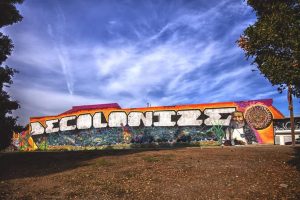
A workshop on the topic provokes months of contemplation on how to see the world anew.
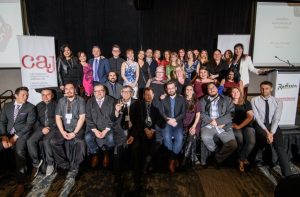
Lack of diversity in media is bad for democracy, business, and justice. And readers. But what’s the solution?
The post The CBC Must Decolonize its Reporting appeared first on LiisBeth.
]]>The post A Recipe for Justice appeared first on LiisBeth.
]]>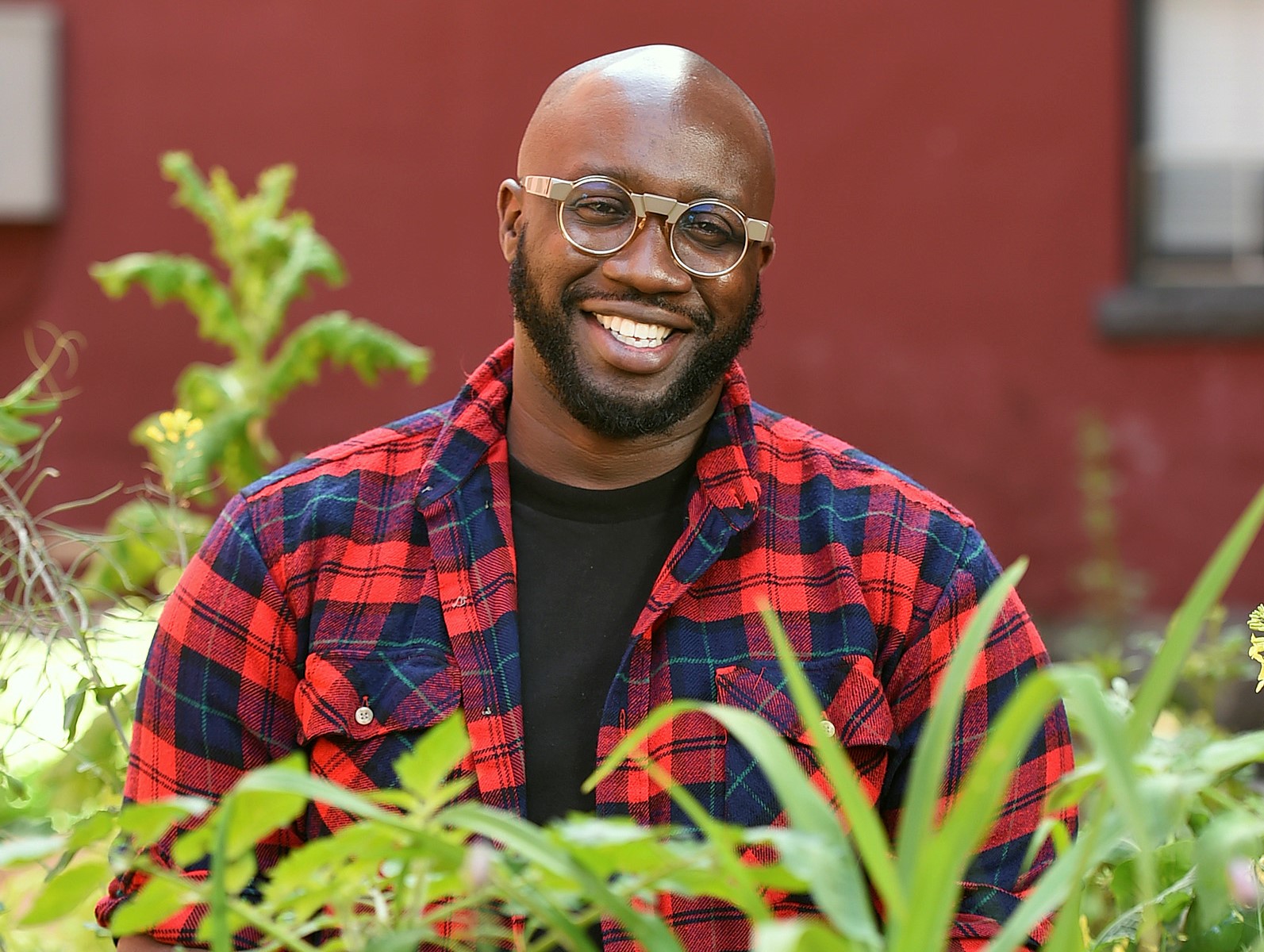
Last month, I set out to find examples of advanced feminist enterprises that were doing truly radical work, showing us what a socially just, post-capitalist enterprise and economy might look like.
FoodShare, a large and innovative Toronto-based food justice charity, emerged as a provocative example.
FoodShare was founded in the 1980s in response to an alarming increase in hunger and food insecurity due to the recession, with Indigenous and Black households experiencing the highest rates of food insecurity. It was meant to be a temporary organization dealing with a short-term issue, but as the number of food bank dependent and food insecure people in Toronto grew, so did FoodShare. Today, it is the largest food security charity in North America, entering another rapid growth period due to the pandemic.
FoodShare has more than a dozen income-generating and grant-supported programs including community garden facilitation, kitchen incubator, school lunch programs and a good food box delivered to subscriber doors. The organization employs 120 people of whom 54.8 per cent are women, 1.6 per cent transgender and 2.3 per cent gender nonconforming. While most Canadian organizations are just beginning to embrace the government supported 50-30 challenge (which calls for corporations to increase representation of women to 50 per cent and BIPOC representation to 30 per cent on boards), FoodShare’s board of directors is already 62 per cent female and 85 per cent BIPOC.
Debbie Fields founded and led FoodShare for more than 25 years. Paul Taylor, took over as Executive Director (ED) in 2017.
Here’s what he has to say about FoodShare’s latest progressive initiatives.
LiisBeth: Do you identify as a feminist?
Paul: Of course! I was raised by a bad-ass Black woman and come from a long line of bad-ass community minded, Black women. I was taught to listen and learn from women, and in particular Black women in leadership. I saw, through my mother’s eyes and experiences, how the patriarchy drives the kind of capitalism and neo-liberalism that’s wreaking havoc across the country. The pandemic has further exposed how much we still undervalue women in society. I think it’s horrific that we are just now starting implement a national childcare policy. If this was something that men depended on, we would have had a national childcare program decades ago.
LiisBeth: What do you think is the most radical change you have initiated since you joined the organization in 2017?
Paul: I would have to say our focus on implementing a standard-of-living wages, equal wages and wage-range compression policy.
Over the last few years, we have increased the lowest paid colleague salaries by 25 per cent. And we are not stopping there: we’ve got another increase that we’re working on that will be pretty significant and really important.
We’ve also tied the compensation for the lowest wage worker to the highest wage worker. For example, the Foodshare Executive director can make no more than three times what our lowest paid worker makes. From now on, we’re all going to be moving forward together — if we’re moving at all.
Given that CEOs and Executive Directors in the nonprofit sector often make many — sometimes 100 times — what the lowest paid employee makes, I think that is pretty radical.
We are also really committed to really thinking about how we challenge low wages for any kind of work, not just within our organization, but within the entire sector and within the food system. One of the directors on our board is a food delivery carrier. He has been helping us think about the range of opportunities that exist to support low wage workers in the food system.
LiisBeth: Was the increase and wage compression policy a tough sell internally?
Paul: No, it wasn’t because it’s all about how we do board recruitment and who is on our board.
Traditionally boards look for directors who have certain professional designations like finance, legal, HR, or look for those with a C-suite title as a proxy for credibility, capability and intelligence. When we recruit on these terms, all we are doing is recreating the barriers that exist in society, for example, access to education.
So instead we flipped the norm on its head. Instead, we say, we’re going to prioritize recruiting board members that get the philosophical underpinnings of the organization, who have a commitment to equity, food justice, have lived experience with these issues to wisely design and implement new approaches, and who are willing to roll up their sleeves and dedicate resources to challenging those inequities.
If directors lack experience or education in certain areas, say in interpreting financial statements, board governance or investments, then we say, how can we provide support? We invest dollars in building our board’s capacity instead of expecting folks to have gone through all of the hoops that society presents to qualify, hoops that we all can’t reach.
LiisBeth: When you changed your ideas about who qualifies as a board director, did that change the make up of your board?
Paul: Completely. Today, our board is headed by an Indigenous activist, Crystal Sinclair. Our board is now predominantly made up of BIWOC folks. It’s unlike any board for an organization our size that I’ve ever seen. It’s composition really affects the key decisions that we make and how we show up in these decisions. For example, when we’re having a conversation about things like defunding the police, we’re not talking as (white) allies, we’re saying stop killing our communities because we are part of those communities. It changes how we show up on these issues, where we locate ourselves in these issues, and how we advocate.
LiisBeth: What do you think prevents other organizations from doing what you’ve done?
Paul: A willingness to reframe what it means to do the work that we do and how we do it. I think if we don’t acknowledge that patriarchy, colonialism, white supremacy, anti-Black racism are actually deeply rooted organizing principles and profoundly embedded in the way we work, well, then we will never come up with the strategies, the policies and the ideas for dismantling those systems within our own enterprises.
People need to be thinking outside of the box.
They need to be committing organizational resources to tackling these things. Tackling these things is not a black post or a black square on Instagram. Working to liberate your organization from these harm perpetuating systems requires resources, time, and a leadership team willing to be vulnerable.
LiisBeth: What advice would you give to small enterprises who are looking to dismantle patriarchy, colonialism, white supremacy and capitalism in their own operating practices?
Paul: If you want to prioritize that work, which I encourage everybody to do, and if you don’t have that capacity within, then reach out and secure a consultant that is focused in that area and has the lived experience to draw upon. And compensate them accordingly.
The second thing I would say (and this may be brutal for folks to hear) is that businesses that leverage inequality to exist are not sustainable. People have only been able to make them sustainable on the backs of low-wage workers, on the backs of precarious work arrangements. That’s the hard truth. The conversation we need to have.
I think we have to say no to building enterprises on the backs of under-paid, under-cared-for workers. If we’re not paying living wages, we are unsustainable.
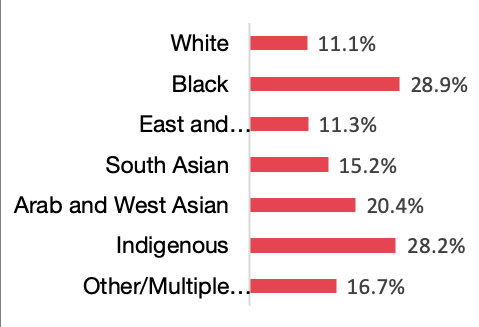
LiisBeth: Is FoodShare a postcapitalist business enterprise?
Paul: Good question. You know, we recognize, capitalism is why charities exist. It’s a system that ensures that society’s resources are disproportionately distributed, and we need to be calling attention to the way that capitalism and neo-liberalism have created the conditions that cause some people in this country to constantly worry about where their next meal is going to come from while others are dreaming up new schemes to avoid paying taxes.
The existence of billionaires to us is as much a policy failure as the fact that close to a five and a half million people are food insecure in Canada.
So, unless we’re talking about how we collectively dismantle capitalism, and acknowledge and compensate for the harm that it’s caused to communities, we are just feeding a system that’s been designed to keep us so busy we don’t have time to examine the root cause of so much of the inequities that we are now all forced to navigate.
I think all nonprofit and for-profit leaders need to be holding our government to account to make sure that equity is centred in legislation and public policy
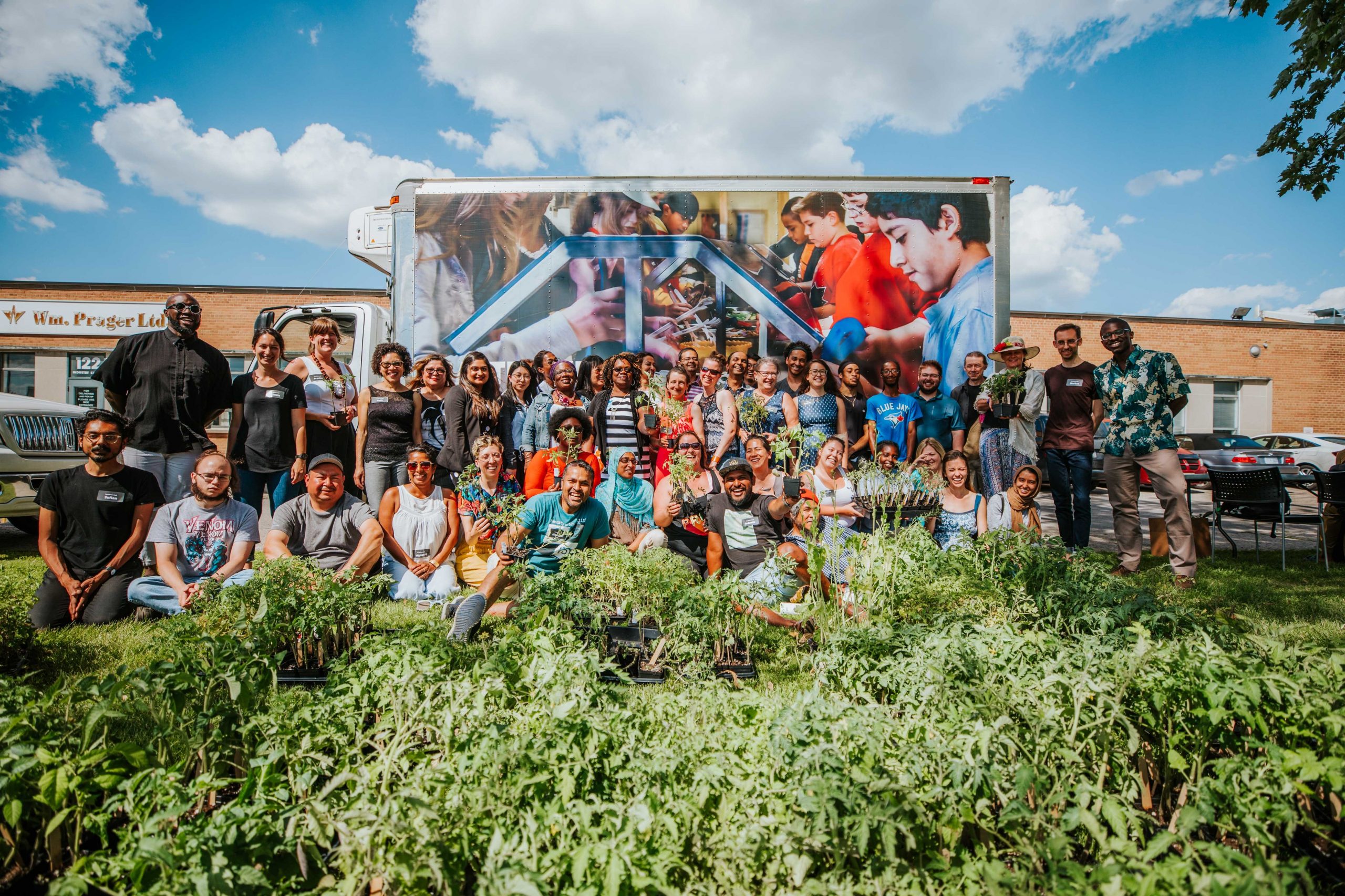
LiisBeth: Who is informing, inspiring your work right now?
Paul: I am inspired by folks connected to the ongoing Idle No More movement, folks at 1492 Land Back Lane, Climate Justice Toronto. For me, these are the groups that recognize that the voices of Indigenous peoples across Turtle Island and even across the world need to be heard. I would say I am inspired by the movement around abolition that has been led again primarily by Black women is one that dares us to dream of a world that isn’t preoccupied with punishment. Other movements that I’ve gravitated towards for inspiration, for hope, are those that are centered on justice. They’re intersectional, and they prioritize those who have had the most stolen from them as a result of settler, colonialism, capitalism, and the proliferation of neo-liberalism.
LiisBeth: Thank you so much Paul, for this interview and more importantly, for your incredible work as a badass feminist enterprise leader.

LiisBeth catches up to BLACK FOODIE five years after its launch.
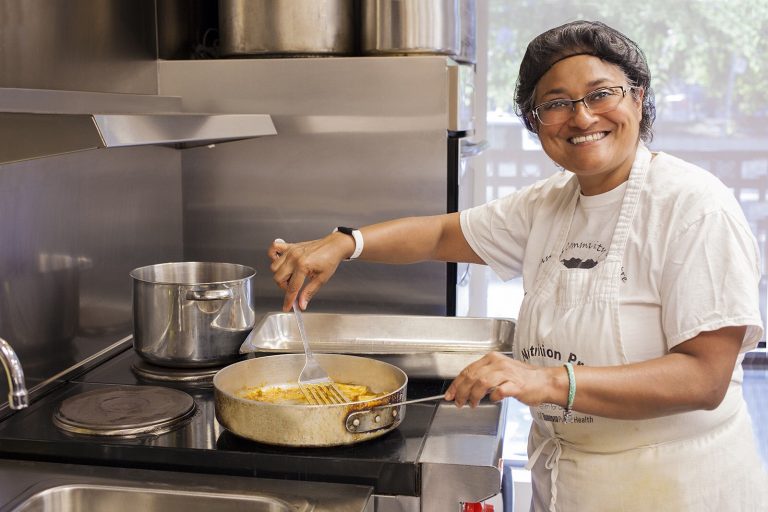
A unique social enterprise that has been generations in the making tells us how to scale and build a resilient enterprise in tough times.

The post A Recipe for Justice appeared first on LiisBeth.
]]>The post Innovate This appeared first on LiisBeth.
]]>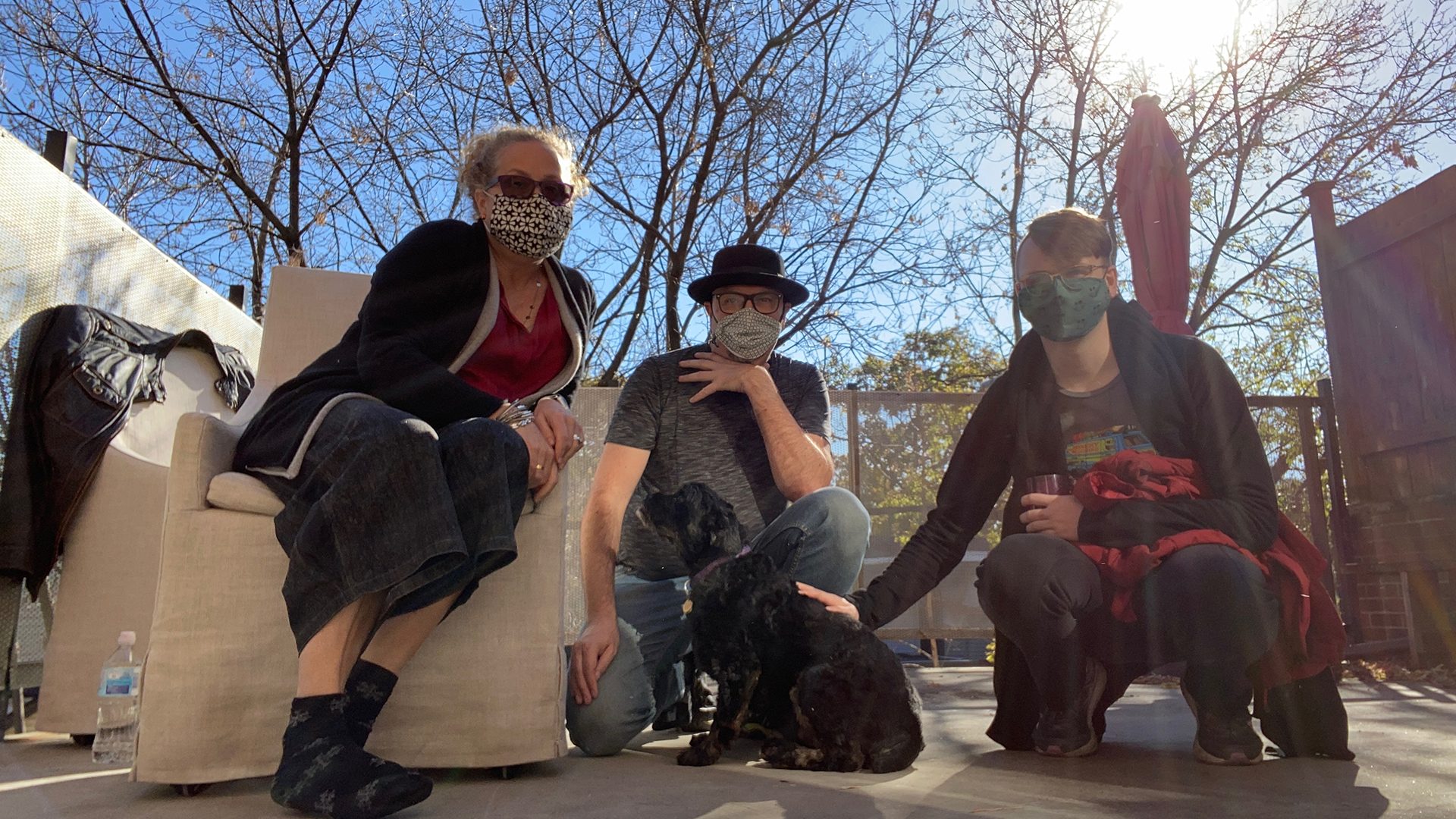
Since the pandemic hit, Deb Day’s been holding a daily virtual meeting with her team that’s been like no other marketing and digital content studio has conducted. They open with a wellness check-in and bookend with a gratitude practice. There’s no talk of clients, projects, or deadlines. Instead, they talk about priorities and everyone shares one thing they’re grateful for. It could be anything: supportive partners, the roof over their head, coffee, a good TV series to pass lockdown leisure hours.
“The team’s not worked in the office since March 13, so it was a priority for me that we adapt our connection with each other,” says Day, who founded the Toronto-based strategic marketing enterprise, Innovate By Day, in 2010. “Virtual meetings can be very transactional — ’just get ’er done.’ It’s a bit soul destroying, so we’ve put systems in place to connect with each other more and differently.”
Indeed, Day stirs up a lot of “business as usual” approaches, which has helped the company innovate to meet the challenges of the pandemic — surviving without having to lay off a single person.
When she launched, she even resisted the term “strategic marketing” for what her company does as it’s associated more with capitalism and consumerism than the feminist and social-justice values at the heart of her studio.
Innovate By Day primarily works within the cultural industry — film, television, art, music, publishing, nonprofits and broadcasters — building online communities and creating audiovisual content such as TikTok videos, Instagram lives, company sizzle reels. Day’s thoughtful about who she works with, teaming up with clients who align with her company’s values. “We would never do something that was pornographic or overtly racist or provocative for the sake of being provocative. I have to be able to align with them at some level, as does the team.”
To accompany the CBC documentary Girls’ Night Out, based on the Ann Dowsett Johnston’s book Drink, the company created the #RethinkTheDrink campaign, a cross Canada peer-to-peer talkback tour and impact campaign at colleges and university campuses featuring custom content and marketing materials. It also created a legacy toolkit to keep the conversation going to combat binge-drinking culture after the in-person tour wrapped.
On another campaign, Day’s team was engaged to support the discoverability and online conversation of the powerful six part documentary series Enslaved: The Lost History of the Transatlantic Slave Trade for and its international release on specialty channel EpixHD in the US, BBC Two in the UK and CBC in Canada. Their role was to curate content, write messaging and moderate the conversation online on the selected social media channels.
“Those projects are meaty and they’re really, really satisfying,” says Day. “Sure, we’re not making the same money as someone who’s selling iPhones and cigarettes, but we’re okay with that. Our goal is to not become bigger and massive. It’s to do meaningful work. We love empowering new businesses and new projects to really define who they are and to reach their audiences.”

Day has taken the same approach internally, empowering her employees with a human-centric, feminist approach to the way she runs her studio. They embrace anti-oppression and anti-racist values, supporting staff to be their best and truest selves.
Early on, Day developed an employee benefits package by asking her team what kind of coverage they wanted. As a result, the company developed a package that includes health and dental insurance and more sick days and time off than Ontario’s minimum employment standards — in an industry that often relies on freelance “gig” workers.
She also flattened the hierarchy. Employees aren’t pigeonholed into defined roles and responsibilities. Being a smaller team helps. So does encouraging people to stretch themselves in different ways based on their interests and abilities. For instance, a UX/UI designer became the lead coordinator on a project completely unrelated to their role. A social media specialist produced content outside their skill set. Says Day: “Due to the nature of our company, we have to be flexible and really lean into how we can evolve ourselves at the same time as we’re evolving what we’re offering to the clients.”
She adds that anyone who wants to work a regular nine to five schedule and stick to a job description wouldn’t want to work for her company. “We have to be far more agile and adaptive especially in these times.”
On the other hand, anyone who wants to be playful and innovative can thrive. Four years ago, the company secured their own IP to evolve their offerings for their clients, leading to the development of one of their most successful projects yet, the “Innovate Prediction Game Engine.” Teaming up with some of the biggest reality television franchises in Canada, the studio created an online game that lets people bet on who they think will get knocked off of The Bachelor Canada or who they think will win the Head of Household on Big Brother Canada.
Evolving is something the company has had to do a lot this past year. When the pandemic hit, 50 percent of the company’s business was either paused or cancelled. They battened down the hatches as COVID-19 cases went up while marketing spending went down. They applied for every funding program they qualified for. They checked in on their clients and contractors to see how they were doing. They teamed up with a business coach to ensure their cash flow was stable. They put a plan in place in case someone got sick. And it all paid off. The company retained all of the staff, including nine full-time and four part-time employees, as well as a handful of contractors.



Day says that none of it would’ve been possible if she hadn’t taken care of herself first. As an entrepreneur with a teenage daughter, a husband, and father living in a care home, she often finds herself pulled in many different directions. And as an extrovert cooped up indoors with little contact with people, she’s found working virtually challenging. What keeps her going are those daily gratitude practices and daily walks, which are non-negotiable. “It’s really important to take care of myself because I won’t be able to take care of others,” says Day.
She remembers the early days of having to convince clients that marketing was worth spending money on. It’s easier now convincing clients the value of connecting with people, not only because the pandemic makes that so difficult but also because it’s a value that is deeply rooted within the company itself.
“I’m building a company that I would’ve loved to have worked for,” says Day. “A company that feels supportive and is respectful and collaborative.”
Publishers Note: Fifth Wave Labs is Canada’s first feminist accelerator program for women in digital media. It is a year-round program offered by CFC Media Lab and its partners to support the growth and development of women entrepreneurs in the digital media sector in southern Ontario. All enterprise founders in the Fifth Wave community are selected for both their potential and commitment toward weaving intersectional feminist ideals of equity and social justice into sustainable and scalable business growth strategies. Fifth Wave Initiative is committed to 30% participation by members of underrepresented groups. The Fifth Wave is a LiisBeth Media partner and ally. Interested? Apply here.e

On the Driftscape app, they can do that and maybe even sing you a song.
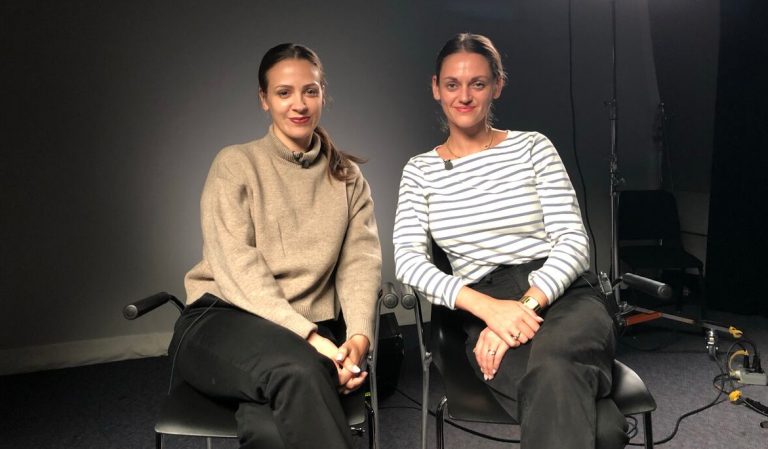
Two funny feminists meet in a boutique. Cue action.

As an anonymous content writer in a booming industry, Emma Elobeid found herself selling more than just her words.
The post Innovate This appeared first on LiisBeth.
]]>The post The Power of Two appeared first on LiisBeth.
]]>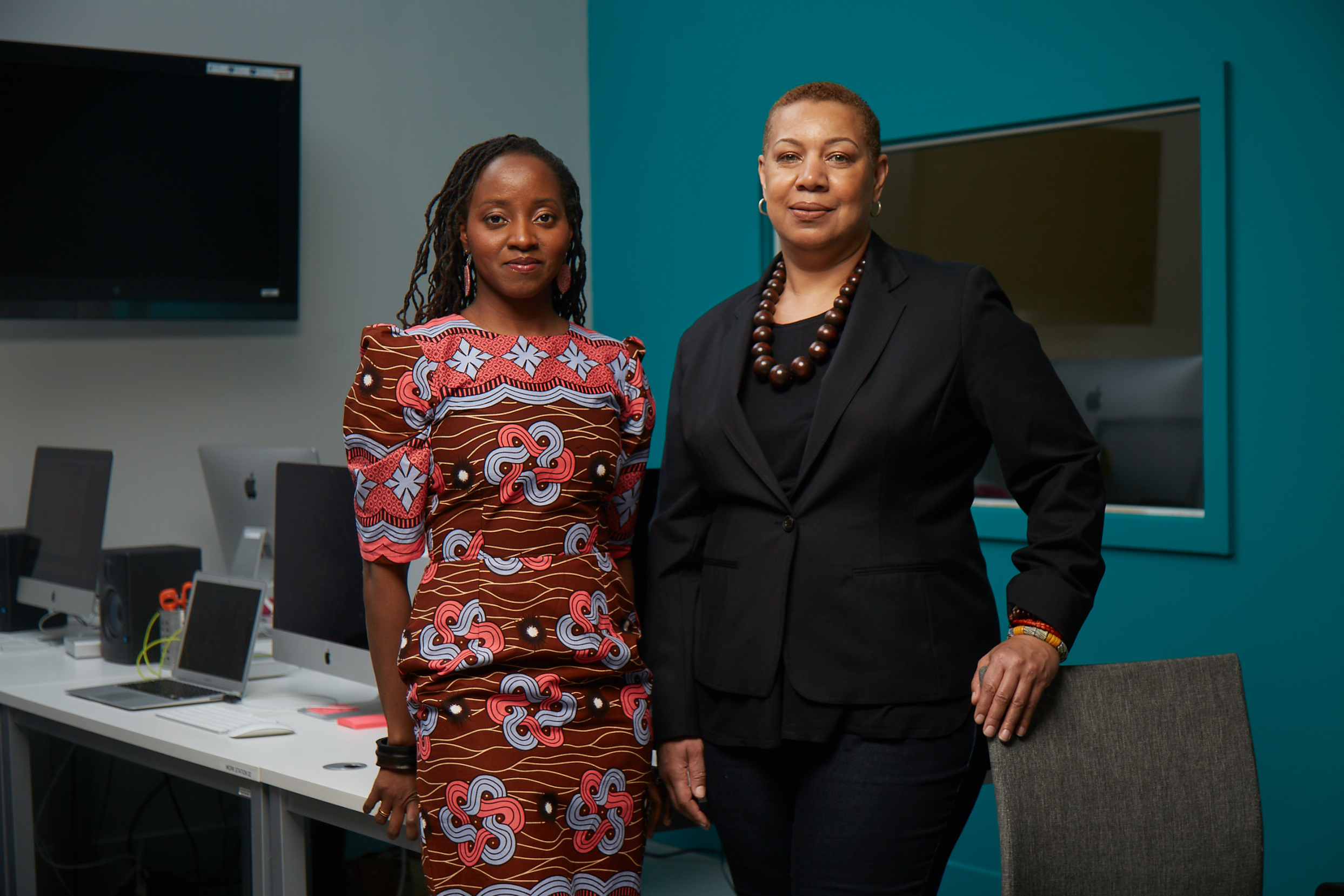
Five thousand.
That’s roughly how many hours of film that Winston LaRose had in his personal archives when filmmaker Ngardy Conteh George met up with him to research a documentary she was making.
He had shot footage of Charles Roach, a Black civil rights lawyer who fought to change Canada’s citizenship requirements to allow people to swear an oath to the country instead of the Queen, which he argued represented a legacy of oppression, colonialism and racism. He had filmed Dudley Laws, a Canadian civil rights activist who became an outspoken critic of the Metropolitan Toronto Police after a number of Black Canadians were shot by police during the ‘70s and ‘80s. And he had also recorded Marlene Green, who called out racism in Toronto’s education system; and Roosevelt “Rosie” Douglas, a Black student leader who organized The Montreal Congress of Black Writers and led a national tour to build unity between Black and Indigenous Canadians – and was deported for his efforts.
He had archived footage of many more Black Canadian activists who had, as he told George, inspired him to become an activist and leader by their tenacity to represent Black people.
She wanted to use the footage in a documentary she was making on Black activists, but the more they talked, the more she realized that LaRose was a story onto himself: At 80 years old, he was running for a seat on city council to represent his neighbourhood, Jane and Finch, in the 2018 Toronto municipal election.
Located in the northwest end of Toronto, the multicultural, low-income neighbourhood has been home to successive waves of new immigrants but was now being squeezed by urban gentrification. LaRose had spent much of the past 25 years of his life helping residents of the community with issues such as housing and childcare as director of the Jane Finch Concerned Citizens Organization (JFCCO).
Recognizing how important LaRose and his campaign was to the community, George teamed up with her mentor, Alison Duke, and created Mr. Jane and Finch, which ran on CBC Docs POV and was nominated for two Canadian Screen Awards: for Best Social/Political Documentary and Best Writing for a Documentary.
That was also one of the first productions for Oya Media Group, the incorporated company George and Duke created after joining forces. For the two filmmakers, Mr. Jane and Finch is an example of the kind of impact they can make in bringing together their more than 40 years of combined experience in film and tv production.
Soul Projects
Before George and Duke founded Oya in 2018, each had their own production company but felt they had “hit a ceiling” trying to work on their own, given the huge expenses involved in making films. Says George: “You’re solo running a company and you scale up and hire all the crew for different positions when things are busy and you have productions, but when it’s not, you have to scale back down to yourself.”
What they wanted to do, instead, was chase bigger projects and bigger budgets, and felt they had a better chance of success doing it together.
An upcoming project—a feature-length film called Mothering in the Movement—is an example of that. Following the renowned poet, author and feminist Staceyann Chin, the midlife coming of age story looks at Chin’s relationship with her mother who abandoned her as a baby then again at the age of eight, the same age Chin’s daughter Zuri is in the film. It’s about reconciling her own labour pains of raising a child while working to create a world in which their lives not only matter but flourish.
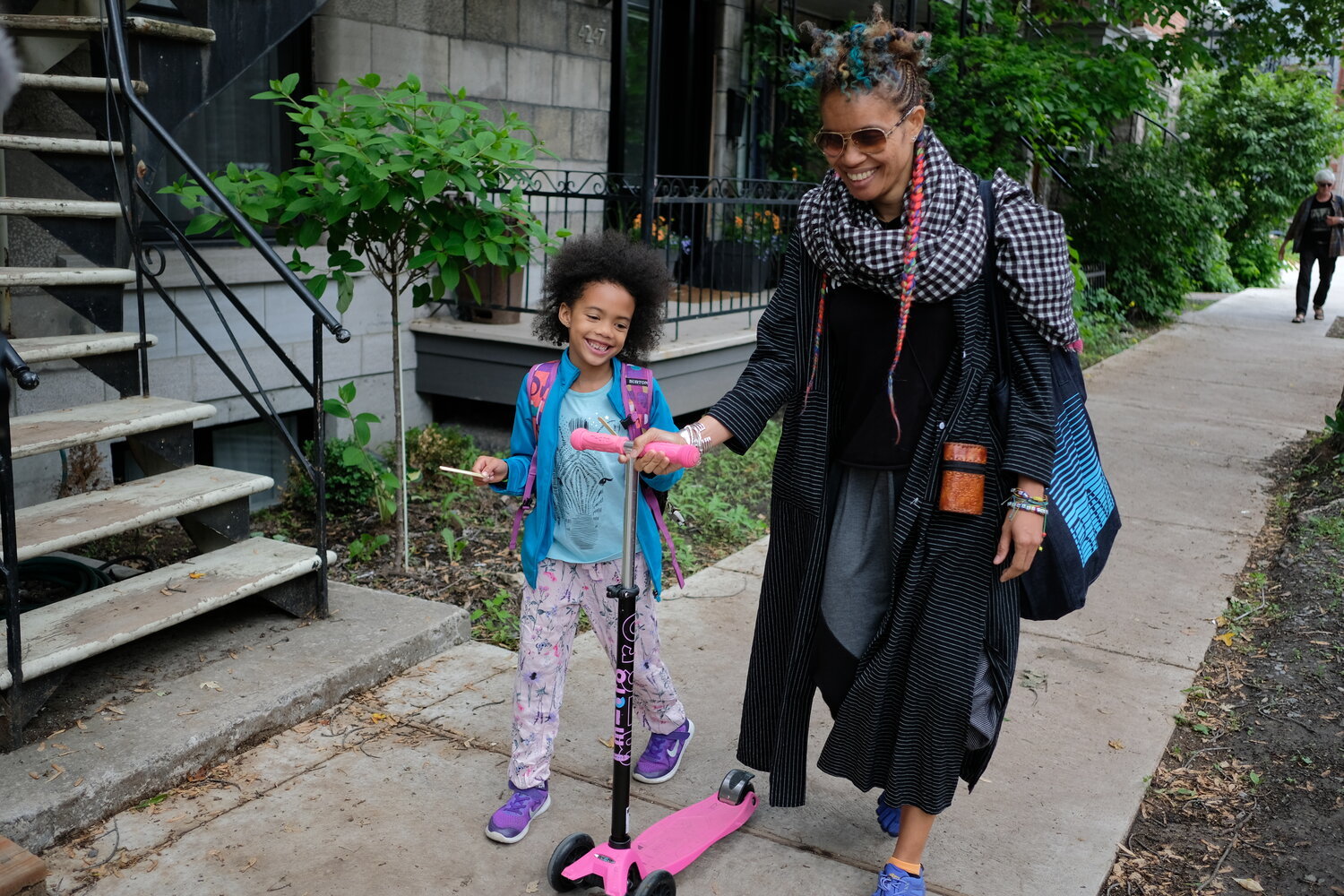
For each project, Oya has to chase money from a number of sources. For Mothering in the Movement, the filmmakers secured funding from the National Film Board and CBC. They have funded other projects through the Canadian Media Fund and Ontario Creates, and also work on commissioned projects for universities and arts organizations.
Given that funding is on a project basis, Oya’s team is composed primarily of freelance creatives and contract workers. They scale up, hiring production managers, line producers and other staff during production, and scale down between projects.
Still, George and Duke encourage input from everyone and strive for collaborative decision making, attributing Oya’s success to its nonhierarchical and decolonized structure. While everyone has their own role and responsibilities during production, George says that
“lots of things happen on consensus.”
As way to give back to their community, George and Duke created Black Youth! Pathways to Industry Program (BYP2I), which helps Black youth gain experience in the digital media, film and television industry by providing mentoring and networking opportunities as well as on-site training. Duke’s brainchild, the BYP2I program is a three-year, industry-led initiative supported by the Ontario Ministry of Children and Social Services. Oya has hired on graduates as set photographers, production assistants and editors.
Do the Hard Thing
While working together has made things easier, George and Duke both say that being documentary filmmakers is far from easy. Layer on the added challenge of being women and Black working in an industry that is primarily male and white. Then there are the stories they want to tell about being Black in Canada. That’s not an easy sell to funding agencies. Says George: “We’ve had to explain why stories from the Black community in Canada are Canadian stories and why they’re relevant to the rest of Canada.” They get questions, such as, “Why would someone in a small town of Alberta care about the Black community in Toronto?” Yet funders would rarely ask a white filmmaker this: Why would someone in a large urban Black community in Toronto care about the white community in a small town?
Still, what brought the two together, and what keeps them together, is their drive to tell Black Canadian stories, so critical to the country’s history, though often forgotten. “Stories are important because history tends to repeat itself,” says Duke, “especially when we don’t acknowledge what has happened and we don’t try to make changes.”
The two filmmakers say the ongoing protests sparked by the killing of George Floyd has reaffirmed their belief in the work they’re doing.
Says Duke: “Sometimes when you’re an artist, you make work and you have to wait for society to catch up. Timing is everything, and so although there’s been a lot of heartache, hard work and sweat equity in our careers…we feel relieved at this moment because now it seems like we don’t have to do so much educating about the context. We’re seeing a shift. People are coming to us.”
Says George: “I feel like the world has finally caught up to what we’ve been standing on rooftops yelling for quite some time. It kind of feels like now they’re ready to listen.”
Publishers Note: Oya Media Group is a participant in Canada’s first feminist accelerator program for womxn in digital media, Fifth Wave Labs. The Fifth Wave is a year-round program offered by CFC Media Lab and its partners to support the growth and development of women entrepreneurs in the digital media sector in southern Ontario. Fifth Wave Connect, the pre-accelerator program is currently accepting applications here. All enterprise founders in the Fifth Wave community are selected for both their potential and commitment toward weaving intersectional feminist ideals of equity and fairness into sustainable and scalable business growth strategies. Fifth Wave Initiative is committed to 30% participation by members of underrepresented groups. The Fifth Wave is a LiisBeth Media partner.

We analyzed five female-directed films at TIFF and explore the hidden lessons for feminist entrepreneurs.

Filmmaker Roberta Staley captures the stories of feminist Afghan women journalists seizing on the power of media to advance gender equality–even though doing so means risking their lives.
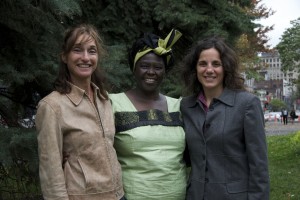
The post The Power of Two appeared first on LiisBeth.
]]>